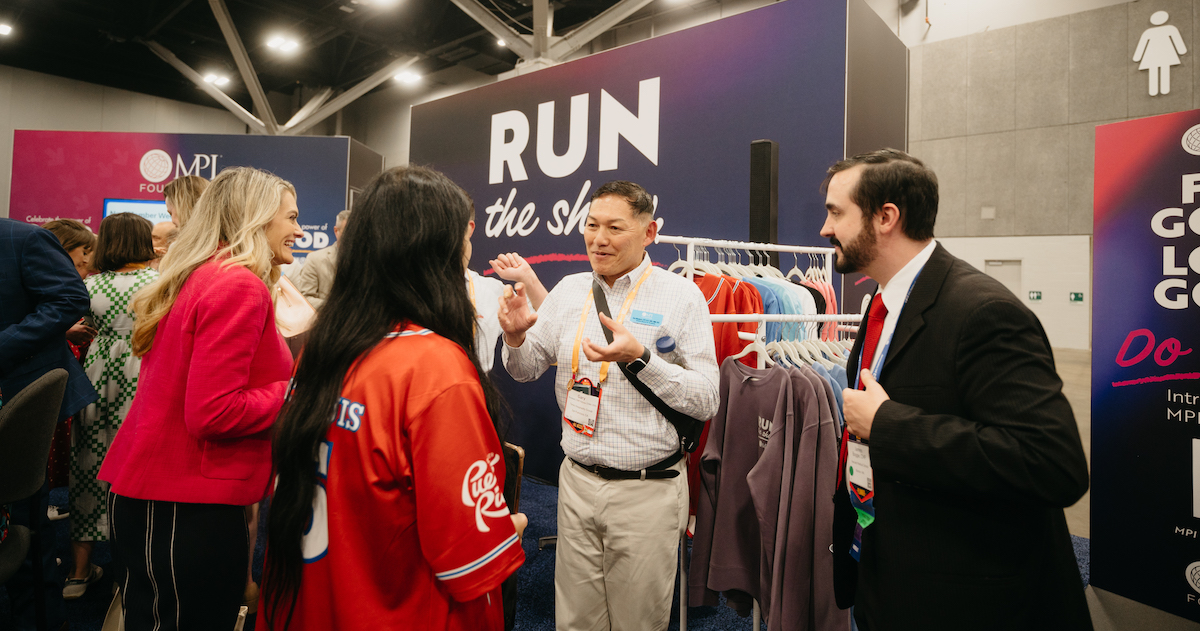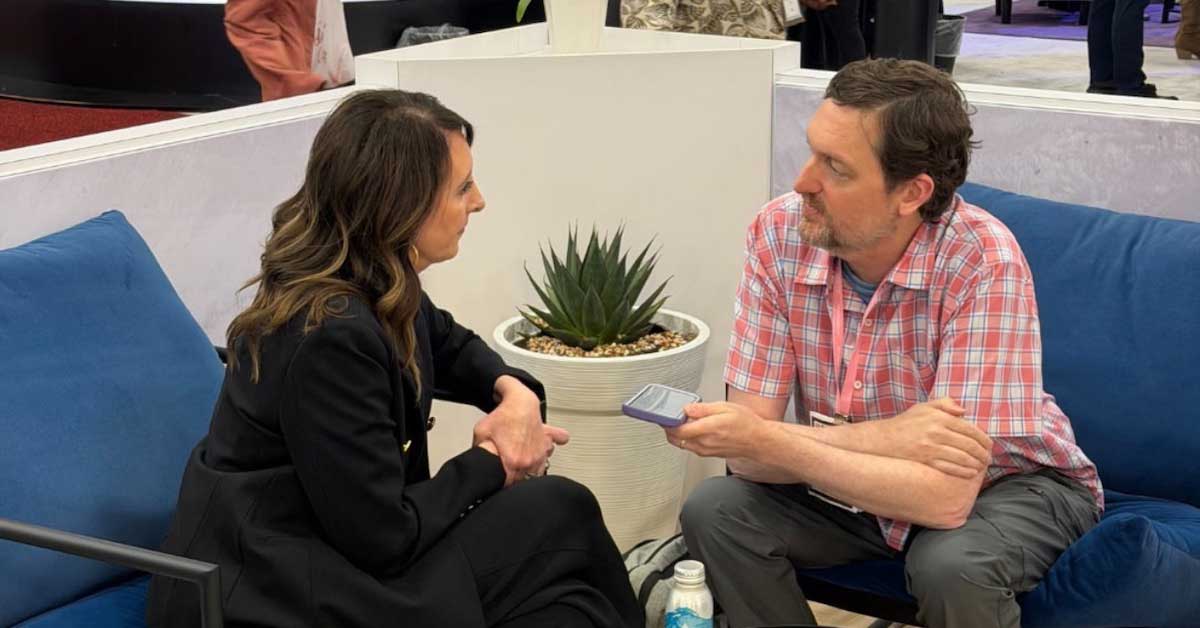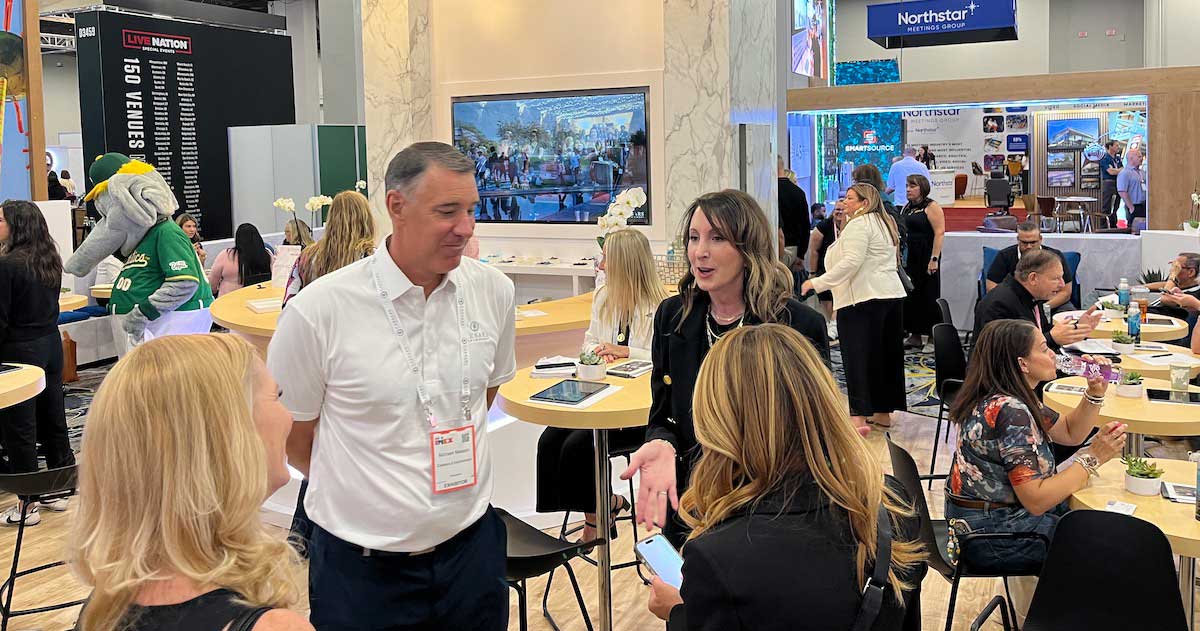In the words of Brené Brown, “To be human is to know sadness. Owning our sadness is courageous and a necessary step in finding our way back to ourselves and each other.”
“Event professional” is not a job title. It’s a decision, a choice, a journey and an experience. It is a wonderful career choice, but it is also one of the most stressful careers one could choose, and not everyone can do it. Why is that?
Because as event professionals, we intrinsically take on stress, anxiety, worry, avoidance, excitement, fear and vulnerability. The industry is unpredictable, like a light flickering on and off, especially over these last two years. And I want to focus on the last two years in particular, because in one way or another, whether you have been successful or not, we have all experienced a lack of human connection, contributing to a greater pandemic of people suffering in silence with their mental health.

Anyone reading this will agree that event and hospitality profs have a right to disconnect from work, as many have succumbed to longer work hours, nights and weekends. The continuous lockdowns have impacted the original client proposals done in good faith and hope of securing business. These continuous changes have caused overwhelming feelings of anxiety, exhaustion and even depression amongst business owners, employees and teams. This pandemic has brought everyone to their knees. Business owners struggle with the constant adapting, employers no longer know what to do to help their teams and the employees are simply burnt out. And the greatest fear I hear about now seems to be that clients, after postponing their events, conferences and destinations several times, expect event professionals just to pick up where they left off.
Expectations have grown, yet the work falls on the event prof, who has doubled and tripled their workload by generously helping to navigate the ship. I can remember when I was running The Idea Hunter, and the expectation was that if a client called and needed a proposal the next day, we would have to stay up at night or work throughout the weekend to please them. It killed me for years.
Does everyone recognize that there is an overwhelming amount of people suffering with mental health problems because this issue is so prevalent in our industry? When is this going to stop? It is 2022, and if the pandemic taught us anything, we should understand that we can no longer have the same expectations we once did. Empathy, mindfulness and human-centricity are daily actions that every person must adopt.
When will it be OK to just say “NO?” I am not blaming either side of this equation, but I am saying that it has come time to treat each other with respect, trust and decency. Clients need to stop calling producers, DMCs and team members, expecting them to do all the work again for zero compensation, and employers need to stop passing the anxiety and pressure on to their teams. As an industry, we must adopt human-centricity and a change of mindset and listen to the burned-out voices suffering from no work-life balance.
“Event professional” is not a job title. It’s a decision, a choice, a journey and an experience.
We are all aware that being an event professional means late nights and weekends, but that does not mean that you can walk all over someone to get it no matter what time of day. I have spoken to several well-known professionals who have worked in this industry for years, and they all say the same thing: this expectation needs to stop. People are tired.
So, I am going to say this once and for all: Stop expecting event professionals to just “get it done” on your agenda, forgetting that they also have a life. Anyone who chose to become an event professional took an unwritten oath: “Guide the mission with integrity, trust and respect.” That means both parties have boundaries, agree to the timetable, agree to the financial burden and work with a decent amount of time so that owners and their teams can commit to best practices. The industry is going to change; I am committed to making this happen, as it affects too many lives to let it go. If you find yourself on the wrong side of the equation, if your company is one of the ones impacted by this or if your company culture is such that it’s not adhering to best practices, respect and decent employee management, start addressing it now. The industry will be pushing back. This is not a threat to anyone or any company; it’s a promise to push this movement towards no longer accepting the behavior. The job opportunity is not worth anyone’s mental health, and the profit isn’t worth it either.
Taryn Tang, Ph.D., a highly respected professional in mental health, found a recent survey done by EventWell in the UK that reported one in three event professionals experience poor mental health in the form of anxiety, stress, depression and burnout every year. The national average is one in four. Event profs rate their well-being as a six out of 10. The report says that 42% of event profs have changed jobs, leading to the much-discussed Great Resignation. This year, event profs are sixth on the list of the most stressful jobs at a whopping 51.19%
- The report also looks at how job demands evoke stress and burnout.
- Amount of travel
- Deadlines
- Physical and emotional demands
- Growth potential
- Competitiveness
- Overtime hours, nights and weekends
- No work-life balance
- Environmental conditions
- Financial stress
Miguel Neves, editor and chief of EVENTMB, recently conducted a study in which he asked event profs if they suffered from stress and burnout. Of 656 respondents, 90 percent said yes, and only 10% said no. Another interesting fact showed that 81.2% of freelancers considered leaving the industry in the last 12 months. The top reason people are resigning is the reputation of the business’ approach to workplace well-being, and the top 5 reasons to select a new employer. With these stats, every employer in our industry is under a microscope, and the causes are being shared in particular amongst younger people who care more than we did about wellness and balance. So, the steps for creating a healthy journey now come in the form of discussion, social connection and creating a movement that changes the way employers treat their staff.
Where does one seek out help, support and advice? Over the past year, having spoken to hundreds of families, friends and colleagues, I have found myself perplexed by the lack of peer support that industry associations provide and the non-education that companies have yet to provide on this very invisible issue.
Interestingly, re-designing spaces, protocols, liability, safety and security has taken a front-row seat to a human problem that has existed for so long. Event profs are champions at being organized, tech-savvy, educating themselves, adapting, listening and sharing, yet when it comes to themselves, they mask their faces and voices as if they are fine. You’re not fine. And it’s OK not to be OK. We have started to recognize that we are all in this together, and we are beginning to open conversations about our health and well-being. Let’s be honest—for years, we were great at paying lip service to ourselves and others. Think of all of the conversations you have had over the last two years; I will venture to guess that many of them were challenging, painful or sad.
Stop expecting event professionals to just “get it done” on your agenda, forgetting that they also have a life.
Whether you suffer from mental health issues or not, you know someone who does. So, what can we do as an event community to dispel the existing stigma? Elizabeth Gilbert writes, “you are afraid of surrender because you don’t want to lose control, but you never had control; all you had was anxiety.” Think about that statement for a moment! As event professionals, we organically want to have control because our reputations are at stake and our livelihoods depend on us taking care of business at the expense of ourselves.
As a community, we have never educated ourselves as to the importance of human connection. The positive impact that human connection has on us is happiness, reduces anxiety and depression, builds resilience, increases empathy and compassion, strengthens our immune system and increases our chances of living longer by 50%. So, where in this is the opportunity? Creating conversations within the organizations you work for, associations you belong to or individuals you work with is one way of creating peer support that will ultimately see a better-prepared workforce and a more engaged outcome.
Leslie Bennett is one of those people who advocates for companies to do better for their employees’ mental health. She spent the early part of her career in the event and meeting industry. She was too afraid to let her secret out to her colleagues and network, fearing losing her job and being shunned from the industry. Little did she understand that disclosing her mental health experience would have been OK—her lack of knowledge about her human rights and what a duty to accommodate meant kept her silent.
In 2007, Leslie made a life-changing decision to be open about her experience living with bipolar disorder. Her career shifted, and her commitment to supporting workplaces to become psychologically safe was deepened by learning as much as she could about what it meant to live with and work with a mental health illness.
She is now a partner with Mental Health Innovations. She and her partners focus on supporting organizations that prioritize workplace mental health. They focus on eliminating barriers and supporting clients to build the case for a mentally healthy work environment. They help clients by:
- Assessing, understanding and addressing how to create a workplace culture of compassion
- Designing and implementing social support (workplace peer support) programs within highly complex systems—workplaces and healthcare systems
- Implementing the National Standard of Canada for Psychological Health and Safety in the Workplace
As a heart-centric entrepreneur, I know that opinions, judgement and a lack of knowledge are the enemy. So how can we prevent them from winning the war inside of us? Build a movement, talk more, find more advocates, more educated speakers like Leslie who have the resources to engage our teams. We need to keep telling our stories and, lastly, show some love and make stronger connections to help reduce the stigma that many feel in their work environments.
For my part, I am dedicating this next year to getting this message out in Canada and abroad to try and change the conversation. I have started a task force of like-minded event profs, willing to get vocal and fight for change. I will stand up and be more vocal about this than ever because I have seen the impact this has had on people I care about, and change needs to happen.
To be continued…
Written by Janice Cardinale for CSE Magazine and other media outlets, helping me bring these actionable ideas forward.
Facts: The Right to Disconnect Law - Bill 27
On October 25, the Ontario government announced the introduction of Bill 27, the Working for Workers Act. This bill has several ramifications for Ontarians. Perhaps no aspect has received as much attention as what is often referred to as the right-to-disconnect law.







